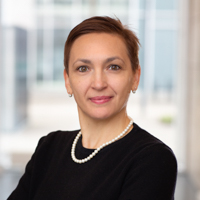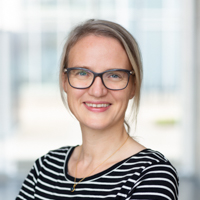

A multilingual understanding of CC is presently sorely missing for applied linguistic research and professional work not the least because a growing number of higher educational (HE) settings include and cater for linguistically diverse student and lecturer groups due to the internationalization of HE, which has led to unprecedented student, lecturer, and researcher mobility. While framed as EMI, HE educational practices draw on multilingual resources -- student and lecturer communication practices can thus not be expected to be the same as is the case in monolingual English educational settings for which CC models had originally been developed.
Research in this area tends to be localized suggesting that contextual variation leads to incomparable language use practices. Therefore, this project focuses on a cross-contextual analysis of the EMI language use domain in three university contexts University of Copenhagen, University of Vienna, and Chalmers University of Technology. These three contexts are comparable regarding EMI implementation local communication norm development, English language proficiency levels, and the increased focus on the national languages (Danish, German, and Swedish) in the national or institutional language policies.

How is the communicative competence of multilingual students and lecturers in natural science English medium instruction programs conceptualized and enacted across three different university settings?
- What tasks and activities are used in EMI science courses? How do students engage with tasks and activities?
- What communicative abilities are needed to engage with tasks and activities, i.e., the language use domains, represented in the EMI classroom across the three university settings?
- What aspects of communicative competence do assignments in the EMI courses across the three university contexts require?
- How is effective communication in EMI perceived and reflected in introspective stimulated recall interviews with students and lecturers across the three university settings?
The project will enrich the ongoing theorization of the CC construct in the internationalized HE by offering a theoretical model grounded in the premise of multilingualism. Such a model will be applicable in the design of empirical research that investigates the facets of communication in HE.
The societal impact of the project lies in its potential to guide the development and/or practical implementation of parallel language policies by informing the development of programmatic, curricular, and classroom-based solutions with intention to enhance teaching and learning.
Once available, select publications will be linked here.
Slobodanka Dimova, University of Copenhagen (PI)
Joyce Kling, Lund University
Sanne Larsen, University of Copenhagen
Hans Malmström, Chalmers University of Technology
Ute Smit, University of Vienna
Post doctoral fellow (position open for applications)
PhD fellow (position open for applications)
John Airey, Stockholm University/Uppsala University
Emma Dafouz, Complutence University Madrid
Anne Holmen, University of Copenhagen
David Lasagabaster, University of the Basque Country
Project leader
 Contact professor and vice director Slobodanka Dimova with any questions about the project.
Contact professor and vice director Slobodanka Dimova with any questions about the project.
Supported by
Towards a New Model of Communicative Competence in Multilingual Higher Education has received a four-year research grant from Independent Research Fund Denmark.
Project: Towards a New Model of Communicative Competence in Multilingual Higher Education
Period: August 2023 - July 2027.
Contact
 Contact tenure track assistant professor Sanne Larsen with questions about the project.
Contact tenure track assistant professor Sanne Larsen with questions about the project.
Researchers from University of Copenhagen
| Name | Title | Job responsibilities | Phone | |
|---|---|---|---|---|
| Beatrice Zuaro | Postdoc | +4535331793 | ||
| Marella Therese Alejandro Tiongson | PhD Fellow | +4535327917 | ||
| Sanne Larsen | Associate Professor | +4535328448 | ||
| Slobodanka Dimova | Professor | Vice director | +4535328173 |
Researchers from partner universities
| Name | Title | Institution | |
|---|---|---|---|
| Joyce Kling | Senior lecturer, associate professor | Lund University | |
| Hans Malmström | Professor | Chalmers University of Technology | |
| Ute Smit | Professor | University of Vienna |

